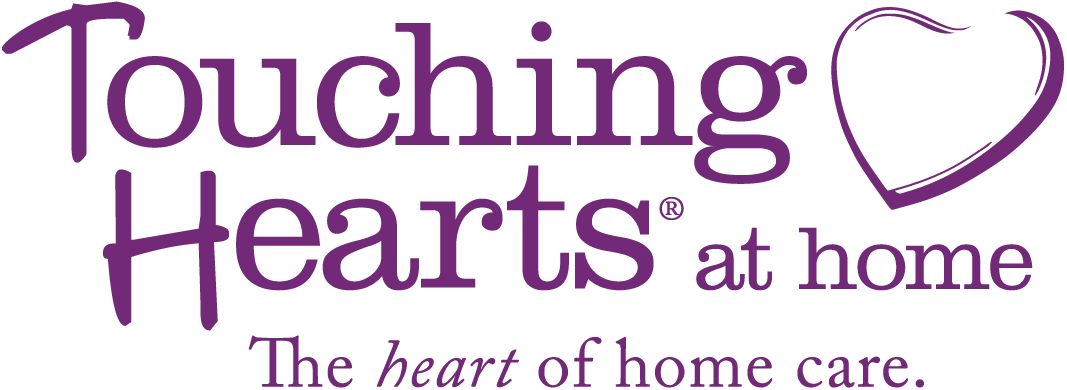At CareAcademy, our team members are passionate about making a difference in the lives of caregivers and […]
By Nancy Mitchell, RN
Caregiving is a highly personable job. It’s full of compassion, support, and understanding.
Quite often, the line between personal and professional gets blurred and it’s easy to overstep it without even noticing. That’s why professionalism becomes the key component in caregiver-centric learning.
Why are professional boundaries significant for caregivers? What do they actually mean, and how do you avoid crossing them?
Meaning and Importance of Professional Boundaries for a Caregiver
A professional boundary for a caregiver is an emotional and physical limit placed on the client-caregiver relationship. It’s a barrier that makes it possible to perform one’s duties well and preserve a healthy interaction.
Where does a professional boundary lie in caregiving?
The National Council of State Boards of Nursing (NCSBN), for example, suggests viewing the therapeutic relationship between patients and nurses through a professional behavior continuum.

So, a caregiver should beware of the extremes (under-involvement and over-involvement), find the helpful or therapeutic zone, and stick to it.

Under-involvement implies carelessness, distancing, or even neglect. Over-involvement leads to rule violation and boundary crossing. Both are markers of incompetency.
Setting and maintaining professional boundaries can help eliminate stressful situations, reduce caregiver burnout, achieve work-life balance, avoid misbehavior at the workplace, and guarantee appropriate care.
How to Maintain Professional Boundaries: A Guide for Caregivers
Follow some practical tips on keeping boundaries visible in a client-caregiver relationship.
Pay attention to communication
Communication is at the heart of caregiving. It’s essential to address it on both verbal and non-verbal levels.
Voice (pitch, tone, etc.)
Caregiving professionals should examine the way they use their voice when communicating with clients, because voice quality is a signal of emotion, mood, and attitude. Involuntarily, a caregiver may sound irritated or dissatisfied.
It’s especially vital to learn how to keep the voice calm when resolving conflicts which are a natural part of any adequate relationship.
Endearment or nickname
Some caregivers call their clients “sweeties” or “honeys” and use elderspeak, similar to baby talk. On the one hand, it can be perceived as humiliating, and on the other, it may provoke over-attachment, if perceived as positive.
Ask clients about their preferred way of being called: their first name or more formally (Mr., Mrs., or Miss). Sometimes, they may prefer to hear professional titles, like "professor" or "doctor."
It’s better to request permission to use terms of endearment. If a care receiver has a nickname, for example, it must be mentioned in the Individual Service Plan (ISP).
Body language
Facial expressions like raising eyebrows, twisting the mouth, rolling eyes, and others convey specific emotions and can be interpreted as signs of disapproval or disdain.
Studies show that professional use of body language by caregivers can enhance the well-being and satisfaction of patients. It is critical for Alzheimer’s patients in particular. Eye contact, open posture, talking with hands, and gestures are indispensable tools when caring for clients with dementia.
Touch
Touch is a powerful means of communication. It can be very supportive and comforting.
However, for some people, it may be unwanted or even displeasing. It’s highly advisable to ask if a person is comfortable with shoulder or arm touches, for instance.
Avoid "kinship" and intimacy
The line between a caregiver and a care recipient becomes too blurry when they form an attachment to each other and develop the feeling of “kinship.” In this case, a caregiving specialist may be perceived as a family member. The attitude then changes from professional to intimate.
Then, there may be cases of flirting or romanticized relationships.
66% of nursing leaders strongly believe flirting between a patient and a nurse violates professional boundaries and 44% consider it unethical.
Follow the rules about gifts
“Giving/receiving gifts or accepting tips for caregiving services can be considered as a form of financial manipulation and exploitation,” says Mark Pierce, CEO of Colorado LLC Attorney.
“A caregiver, at this rate, can face monetary fines and professional license suspension.
According to the Office of Inspector General (OIG), there’s a limit on gifts that healthcare providers can give to their patients. The nominal value of an item or service should be no more than $15 (or $75 per patient on an annual basis),” Mark explains.
Home healthcare agencies typically set their own formal policies and procedures concerning gifts. A “no gifts/tipping” policy is a good solution to protect professional boundaries between caregiving specialists and their clients.
If caregivers have this policy at their agency, they should warn their clients about it at the very start in order to avoid inconveniences and misunderstandings in the future.
Take breaks and decrease the work burden
According to research, family caregivers are more likely to feel the emotional and physical burden of providing care. High levels of burden and stress are particularly dangerous. They not only worsen the caregiver’s health condition but also result in compromised care and affect professional relationships.
It’s necessary to notice caregiver burnout signs as early as possible, take regular breaks, and cut out some time for renewal. Agencies should help caregivers manage stress by providing quality support and supervision, ensuring a well-constructed schedule, organizing training and education, etc.
In addition, there are useful tech tools for caregivers listed in this article by AssistedLivingCenter that can help decrease the workload:
- Medication management tools (RxmindMe, TabSafe, Medminder, etc.)
- GPS technologies (AngelSense or SmartSole)
- Health trackers (HealthVault)
- Care coordination apps (CaringBridge)
- Wireless home monitoring systems (GrandCare or PERS), and more
It’s also beneficial to engage in wellness and self-care training to rediscover the caregiver's value, improve role satisfaction, and increase client understanding.
Master emotional responses and behavior
Sometimes, caregivers can burst out with anger or impatience, for instance, that ruin professional boundaries.
Emotions are natural and they can’t be avoided—but they can be mastered. In his book Master Your Emotions, Thibaut Meurisse teaches us to face and accept emotions, become cognitively flexible, and control the mind’s response to emotional triggers.
Since emotions influence actions directly, a caregiver should also improve the mind-body connection, the way the body and mind interact.
With the risk of harmful behavior of caregivers in relation to their clients, agencies have started providing elder abuse training to prevent emotional, physical, sexual, or any other types of abuse.
Final Note
If you’re a caregiving team manager and want to help your staff members maintain professional boundaries and achieve a higher level of job performance, you may take advantage of CareAcademy training. Discover new educational pathways for caregivers to develop specialized skills and strengthen your workers’ competency.
Nancy Mitchell is a registered nurse and contributing writer for AssistedLivingCenter.com. She has over 37 years of experience in geriatric nursing care.






